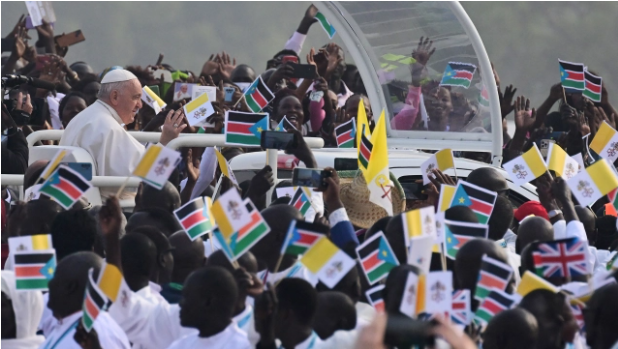East and Central Africa hosted Pope Francis, who visited the Democratic Republic of the Congo (DRC) and South Sudan from January 31-February 5 to deliver a message of peace and reconciliation to the two waring countries.
Both countries are endowed with natural resources including minerals in DRC and oil in South Sudan. However, due to the conflicts the resources are yet to bring economic growth and development to both countries.
In DRC, the Pontiff did not tour the eastern city of Goma as planned as it is the epicentre of the conflict between the army and the M23 rebels. The country which is Africa’s largest Catholic population of over 45 million Christians will be hoping the Pope’s visit will bring hope for peace ahead of the scheduled December elections.
Further North, Tunisia elections only attracted 11% of the voters in parliamentary runoffs according to the electoral commission, with critics of President Kais Saied saying the boycott was a clear indication of public rejection of his agenda.
This was after Saied seized powers, sacked the government, dissolved parliament and passed a new constitution that grants him almost absolute power.
Saied has been accused of trashing the democracy built after the 2011 revolution. Twelve years on, Tunisia’s economy is still struggling with Saied’s authoritarian regime planning to introduce policies that could see elimination of subsidies.
In South Africa, the ruling party, the African National Congress (ANC) is now considering declaring the escalating energy crisis in the country a national disaster.
Following a strategy meeting by the ANC, President Cyril Ramaphosa said work was already in progress to establish whether the crisis legally meets the requirements for a national state of disaster as the country seeks to quicky solve the problem.
The ruling party has come under fire for failing to resolve South Africa’s electricity crisis after more than two decades of indecision, graft and political interference reduced.
Due to the power outage, the South African Reserve Bank cut its economic growth forecast for this year from 1.1% it projected in November to 0.3%.
Power supply is also likely to affect Nigeria according to the latest data from the United Nations (UN). The 2023 World Economic Situation and Prospects report notes that the Nigerian economy is expected to grow by 3 percent in 2023 with power supply and high inflation likely to impact the growth.
Nigeria which is getting into a campaign peak ahead of the February 25th national elections has been hit by erratic electricity supply, acute shortage of petrol and the new banknotes.
The global body maintains that Africa’s economic growth is expected to be slow due to domestic issues in individual countries coupled with uncertain global business environment. As such, it has projected the continent’s aggregate economic growth to weaken to 3.8 percent in 2023 from 4.1 percent in 2022, due to subdued investment and deteriorating export volumes.


